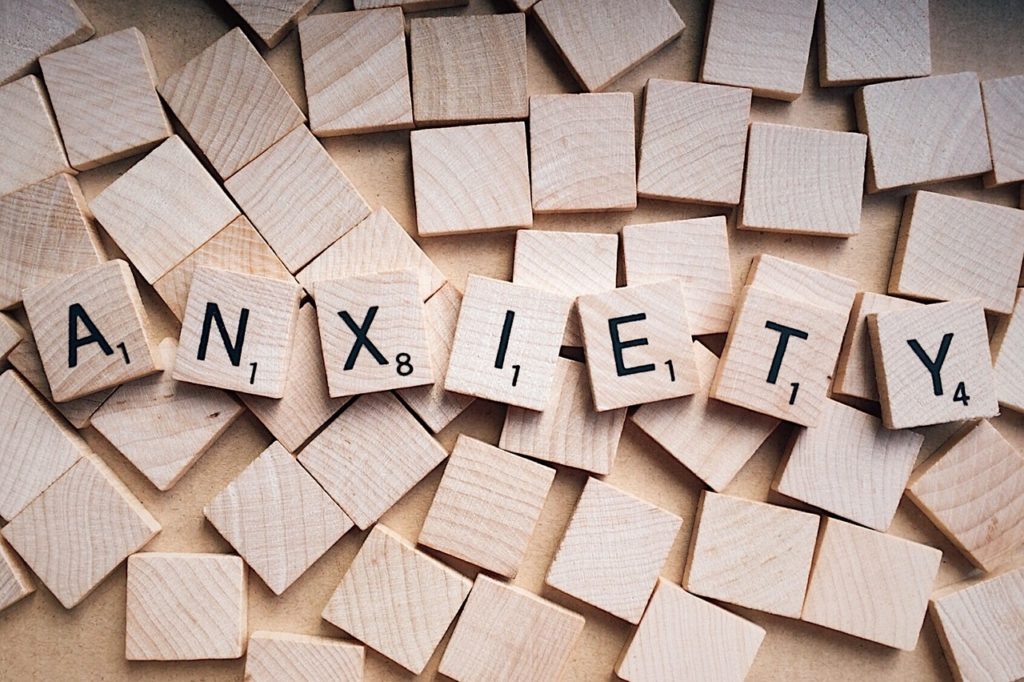Get up and out and move around.
Stop checking your social media accounts every minute or second 24/7.
- Updated: June 27, 2021

Feeling anxious occasionally and having anxiety are two quite different things.
The former makes up normal day-to-day worries.
The latter begins with a thought or feeling that you become fixated upon, leading you to anxiety. Sometimes you may have physical symptoms like a churning stomach or a cold sweat.
Anxiety is a normal part of life.
However, your anxiety needs treatment when it is blanketing all aspects of your life, and not just one current situation.
Seek professional help. Therapy especially cognitive behavioural therapy (CBT) helps.
If that anxiety is not constantly interfering with your daily life, learn to manage your own anxiety.
There are small changes you can make in your life that will reduce your anxiety. They are ways you choose to spend your downtime that cause unnecessary distress without you realising it.
The following are some of the subtle things that can make your anxiety worse.
1. Checking your social media all day and into the night.
Everyone does this at times. Only depends on the regularity of the checking.
Social media makes it easy for you to scroll for hours without you realising it.
On the phone, tablet, or laptop.
Moving from Facebook to Instagram to twitter to WhatsApp to WeChat, forward and backward. And listening to music and watching videos at the same time.
It is catastrophic.
Although staring at all these in the daytime is not a huge issue, it is still a big problem.
But it is a huge deal to do this late at night. It makes you more awake and alert and ruins your sleep cycle.
Sleep is beneficial for people who suffer from anxiety.
You need a good night’s sleep.
You need to be well rested.
Social media is like a drug. It makes you come back for more. You feel fulfilled and satiated when you check back and forth all your social media updates.
Sensationalised content attracts your attention. Watching, reading, and listening to content that upsets you triggers your anxiety. Or content you can compare yourself to, making you feel bad about yourself.
The contents you consume affects your anxiety and overall happiness.
When you consume sad, negative, or stressful content, it adversely affects your mood. But the same goes for calming, happy content.
Go for good content, the happy and motivating stuff. But do not overdo it. Too much of it is also not good as it will also lead you to social media addiction.
2. When you accept and rely on texts and PMs only for socialising.
Socialising with people you are comfortable with helps you feel better.
It is great to keep in touch with people by private or personal messages (PMs) through social media and messaging platforms. WhatsApp, Facebook Messenger, Instagram, Twitter, WeChat, etc.
But it is the in-person meet-ups that help divert you from the adverse effects of anxiety. Phone calls or voice calls may help a bit too.
You can regulate your emotions and calm your worries through interaction with other people.
But please do so with people you are at ease with.
You do not need to interact with anyone under the sun, just for the sake of socialising. There are many types of people and some of them may be caustic, sarcastic and lack empathy.
If you interact with people you are uneasy with or who make you feel tense, you end up with more anxiety.
3. Procrastinating.
When you are super anxious, you put off stuff you should do.
Meeting people. Sending e-mails. Buying needed stuff.
Simple things like having your meals and taking showers.
All these things you put off adds to your anxiety.
Avoiding these responsibilities will increase anxiety. They will constantly remind that you must attend to them.
You will get some relief if you attend to those things one at a time.
One less thing to remind you helps if you have many things you must do swirling in your mind.
4. Spending too much time worrying about the future.
You will feel the most anxious when spending too much time and energy worrying about the future.
The future is not known to us.
You can visualise one thousand and one outcomes. Usually, they are very gloomy and dystopian. And your anxiety increases.
Anxiety lives in the future, and depression lives in the past.
Retrain your brain to focus on the present.
And you will feel less anxious.
Focus on the here and now.
5. Sitting down a lot and not moving your body.
It is difficult to over worry or be anxious when exercising.
People with anxiety tend to be spending all the time with social media or bingeing on the newest TV series.
Exercise is a great way to manage anxiety. It helps you by:
- Improving your sleep.
- Reducing your stress.
- Releasing serotonin, the hormones that make you feel good.
Some people just hate exercising. But it does not need to be complicated.
Going for a walk would suffice.
If you hate getting out of the house, just walk around in the house or up and down the stairs.
Final thoughts.
These things may appear subtle. But repeating these behaviours do us a lot of harm, mentally.
Small things that go unnoticed tend to cause us the most harm.
Changing these things will not necessarily solve your anxiety problems.
But making small changes do help you live a happier life with less anxiety.
